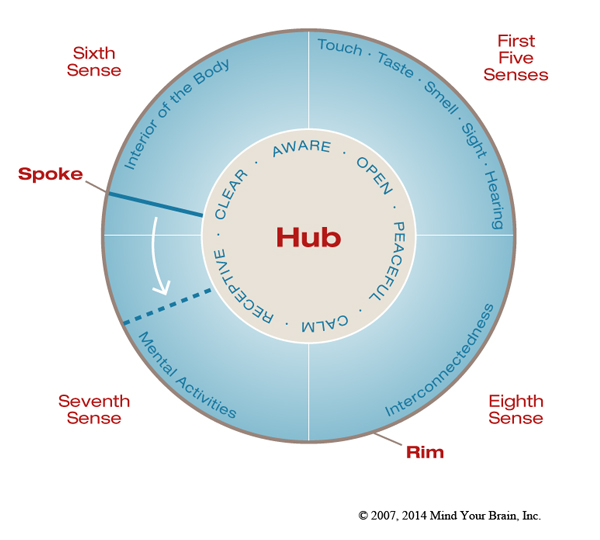Cultivating the skills of mindfulness through regular practice sets a solid foundation to help you become more empowered in your life. Here are a few recordings I have made for my clients to download and use to practice. Different exercises have different purposes, and different people have different personalities and need different things. If you don’t know which practice you need most, try them out and see which one works best for you. You will want to try each one several times, as the first time you will mostly be learning something new and it will take more effort and cognitive thought to do. After a few times, you will be more familiar with the exercise and will start to feel some of the benefits. And keep practicing as often as possible! It will only get better over the years.
You can use this worksheet to keep track of your practice: Commitment-Accountability Worksheet. Set a realistic goal for practice and log your participation or lack of, as well as any notes about how your experience of the exercise or what prevented you from doing it.
Why is it worth spending time practicing this? See some of the research proven benefits below the exercises.
Keep checking back here as more exercises will be added over time.
Let the Outside In – Sensory Awareness Exercise
mp3 download (length 12:36)
Basic Focusing Practice with Instructions
mp3 download (length 8:43)
Mindfulness of Breath – Instructional Exercise
mp3 download (length 7:41)
Drop Anchor – Short Grounding Exercise
mp3 download (length 2:08)
10 Deep Breaths – Short Nervous System Reset
mp3 download (length 3:31)
Dr. Dan Siegel – Wheel of Awareness Exercise – Dr. Siegel is a professor of psychiatry at UCLA School of Medicine. This exercise walks you through several elements of awareness. Here is a visual to use as he is explaining. Briefly, the hub of the wheel is your awareness. In the exercise, he will walk you through focusing your awareness by moving the spoke to point to your 5 senses, the interior of your body, mental activity, and the interconnections of your relationships. It is a fantastic exercise.  Source: http://www.drdansiegel.com/resources/wheel_of_awareness/
Source: http://www.drdansiegel.com/resources/wheel_of_awareness/
Why is it worth spending time practicing this?
Reduced rumination. Several studies have shown that mindfulness reduces rumination. In one study, for example, Chambers et al. (2008) asked 20 novice meditators to participate in a 10-day intensive mindfulness meditation retreat. After the retreat, the meditation group had significantly higher self-reported mindfulness and a decreased negative affect compared with a control group. They also experienced fewer depressive symptoms and less rumination. In addition, the meditators had significantly better working memory capacity and were better able to sustain attention during a performance task compared with the control group. Stress reduction. Many studies show that practicing mindfulness reduces stress. In 2010, Hoffman et al. conducted a meta-analysis of 39 studies that explored the use of mindfulness-based stress reduction and mindfulness-based cognitive therapy. The researchers concluded that mindfulness-based therapy may be useful in altering affective and cognitive processes that underlie multiple clinical issues. Those findings are consistent with evidence that mindfulness meditation increases positive affect and decreases anxiety and negative affect. In one study, participants randomly assigned to an eight-week mindfulness-based stress reduction group were compared with controls on self-reported measures of depression, anxiety and psychopathology, and on neural reactivity as measured by fMRI after watching sad films (Farb et al., 2010). The researchers found that the participants who experienced mindfulness-based stress reduction had significantly less anxiety, depression and somatic distress compared with the control group. In addition, the fMRI data indicated that the mindfulness group had less neural reactivity when they were exposed to the films than the control group, and they displayed distinctly different neural responses while watching the films than they did before their mindfulness training. These findings suggest that mindfulness meditation shifts people’s ability to use emotion regulation strategies in a way that enables them to experience emotion selectively, and that the emotions they experience may be processed differently in the brain (Farb et al., 2010; Williams, 2010). Boosts to working memory. Improvements to working memory appear to be another benefit of mindfulness, research finds. A 2010 study by Jha et al., for example, documented the benefits of mindfulness meditation among a military group who participated in an eight-week mindfulness training, a nonmeditating military group and a group of nonmeditating civilians. Both military groups were in a highly stressful period before deployment. The researchers found that the nonmeditating military group had decreased working memory capacity over time, whereas working memory capacity among nonmeditating civilians was stable across time. Within the meditating military group, however, working memory capacity increased with meditation practice. In addition, meditation practice was directly related to self-reported positive affect and inversely related to self-reported negative affect. Focus. Another study examined how mindfulness meditation affected participants’ ability to focus attention and suppress distracting information. The researchers compared a group of experienced mindfulness meditators with a control group that had no meditation experience. They found that the meditation group had significantly better performance on all measures of attention and had higher self-reported mindfulness. Mindfulness meditation practice and self-reported mindfulness were correlated directly with cognitive flexibility and attentional functioning (Moore and Malinowski, 2009). Less emotional reactivity. Research also supports the notion that mindfulness meditation decreases emotional reactivity. In a study of people who had anywhere from one month to 29 years of mindfulness meditation practice, researchers found that mindfulness meditation practice helped people disengage from emotionally upsetting pictures and enabled them to focus better on a cognitive task as compared with people who saw the pictures but did not meditate (Ortner et al., 2007). More cognitive flexibility. Another line of research suggests that in addition to helping people become less reactive, mindfulness meditation may also give them greater cognitive flexibility. One study found that people who practice mindfulness meditation appear to develop the skill of self-observation, which neurologically disengages the automatic pathways that were created by prior learning and enables present-moment input to be integrated in a new way (Siegel, 2007a). Meditation also activates the brain region associated with more adaptive responses to stressful or negative situations (Cahn & Polich, 2006; Davidson et al., 2003). Activation of this region corresponds with faster recovery to baseline after being negatively provoked (Davidson, 2000; Davidson, Jackson, & Kalin, 2000). Relationship satisfaction. Several studies find that a person’s ability to be mindful can help predict relationship satisfaction — the ability to respond well to relationship stress and the skill in communicating one’s emotions to a partner. Empirical evidence suggests that mindfulness protects against the emotionally stressful effects of relationship conflict (Barnes et al., 2007), is positively associated with the ability to express oneself in various social situations (Dekeyser el al., 2008) and predicts relationship satisfaction (Barnes et al., 2007; Wachs & Cordova, 2007). Other benefits. Mindfulness has been shown to enhance self-insight, morality, intuition and fear modulation, all functions associated with the brain’s middle prefrontal lobe area. Evidence also suggests that mindfulness meditation has numerous health benefits, including increased immune functioning (Davidson et al., 2003; see Grossman, Niemann, Schmidt, & Walach, 2004 for a review of physical health benefits), improvement to well-being (Carmody & Baer, 2008) and reduction in psychological distress (Coffey & Hartman, 2008; Ostafin et al., 2006). In addition, mindfulness meditation practice appears to increase information processing speed (Moore & Malinowski, 2009), as well as decrease task effort and having thoughts that are unrelated to the task at hand (Lutz et al., 2009). Source: APA – What are the Benefits of Mindfulness?
